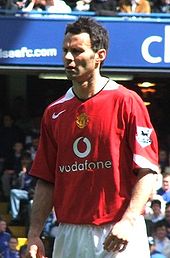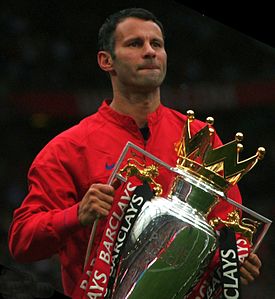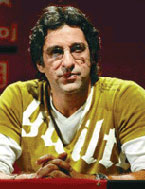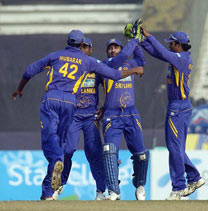Manchester United first team
Giggs made his first appearance for the club during the 1990–91 season and has been a regular player since the 1991–92 season. He holds the club record for competitive appearances, and the club record for team trophies won by a player (23).
Since 1992, he has collected 11 Premier League winner's medals, four FA Cup winner's medals, three League Cup winner's medals and two Champions League winner's medals. He also has runner-up medals from the Champions League, three FA Cup finals and two League Cup finals, as well as being part of four United teams to have finished second in the league. In recent years, Giggs has captained the team on numerous occasions, particularly in the 2007–08 season when regular captain Gary Neville was ruled out with various injuries. Giggs is the only player to play every season of the Premier league for one club and score in every season of the Premier League for any club.
Debut and breakthrough season
Giggs turned professional on 29 November 1990 (his 17th birthday), by which time he was described by various sources to be the finest prospect in English football since George Best in the 1960s.
At this time, United had recently won the FA Cup – their first major trophy since the appointment of Alex Ferguson as manager in November 1986. After two precarious seasons in the league where they had finished mid table, they were finally starting to threaten the dominance of Liverpool and Arsenal, though they only managed to finish sixth that season. Ferguson's quest for a successful left winger had not been an easy one since the departure of Jesper Olsen two years earlier. First he had signed Ralph Milne, but the player was not a success at United and lasted just one season in the first team before Ferguson secured the Southampton winger Danny Wallace in September 1989. However, Wallace had failed to repeat the performances that had made him one of the highest rated flanksmen in his days on the South Coast, and by the time Giggs turned professional Wallace was battling with 19-year-old Lee Sharpe for the role of first choice left winger.
Giggs made his League debut against Everton at Old Trafford on 2 March 1991, as a substitute for the injured full-back Denis Irwin in a 2–0 defeat. In his first full start, Giggs was credited with his first ever goal in a 1–0 win in the Manchester derby on 4 May 1991, though it appeared to be a Colin Hendry own goal. However, he was not included in the squad of 16 that defeated Barcelona in the UEFA Cup Winners' Cup final 11 days later. Lee Sharpe, who had now won the race to displace Danny Wallace as United's regular left winger, took to the field as United's left winger, while Wallace was selected as a substitute.
He became a first-team regular early in the 1991–92 season, yet remained active with the youth system and captained the team, made up of many of "Fergie's Fledglings", to an FA Youth Cup triumph in 1992.
Giggs broke into the first team even though he was still aged only 17, a mark of his skill and maturity, and paved the way as the first of many Manchester United youth players to rise into the first team under Ferguson. As the youngest member of the United first team squad, Giggs looked to the older players such as Bryan Robson for advice. Robson recommended that Giggs sign up with Harry Swales, the agent that he himself had inherited from Kevin Keegan.
That season, Giggs played in the team that finished as runners-up to Leeds United in the final year of the old First Division before the advent of the Premier League. United had led the table for much of the season before a run of dismal results in April saw them overtaken by the West Yorkshire side.
Giggs collected his first piece of silverware on 12 April 1992 as United defeated Nottingham Forest in the League Cup Final, after Giggs had set up Brian McClair to score the only goal of the game. At the end of the season, he was voted PFA Young Player of the Year – the award which had been credited to his colleague Lee Sharpe a year earlier.
Early career
By the start of the 1992–93 season, the first season of the newly formed Premier League, Giggs was firmly established as United's first choice left winger, and became known as one of British football's most prodigious young players. He played a key role in their first top division title win for 26 years, though they didn't go top until after Christmas and fought off competition from big spending Aston Villa and Blackburn Rovers as well as surprise title contenders Norwich City.

Giggs playing for United.
His emergence and the arrival of Eric Cantona heralded the dominance of United in the new league. His manager was very protective of him, refusing to allow Giggs to be interviewed until he turned 20, eventually granting the first interview to the BBC's Des Lynam for
Match of the Day in the 1993–94 season. This was the season when United won the double and Giggs was one of their key players alongside the likes of Eric Cantona, Paul Ince and Mark Hughes. Lee Sharpe, the player Giggs had ousted on the left wing a couple of years earlier, was now vying with Andrei Kanchelskis for the right wing position – with both players having key parts in the club's success.
They topped the table from the fourth game in late August and were not overtaken all season. Giggs also played for United in the Football League Cup final, where they lost 3–1 to Aston Villa, ending their hopes of a unique domestic treble.
He was afforded many opportunities not normally offered to footballers at his young age, such as hosting his own television show,
Ryan Giggs' Soccer Skills, which aired in 1994, and also had a book based on the series. Giggs was part of the Premier League's attempt to market itself globally, re-forging its image after the hooliganism-blighted years of the 1980s and he featured on countless football and lad mag covers, becoming a household name, and fuelling the era where footballers started to become celebrity idols on a par with pop stars, in and around the mid to late 1990s. Despite his aversion to attention, Giggs also became a teenage pin-up and was once described as the "Premiership's First Poster Boy", and the "boy wonder",
[arguably the original footballer who catapulted the term into the public lexicon. He was hailed as the first football star to capture the public imagination in a way unseen since the days of George Best;the irony was that Best and Bobby Charlton used to describe Giggs as their favourite young player, turning up at The Cliff training ground just to watch him, where Best once quipped, "One day they might even say that I was another Ryan Giggs."
His immense popularity heralded a new era in football fandom and was also once described as the "boy who converted a million innocent teenage hearts into United fans".
He burst onto the football scene in the 1990s when football was surging in popularity and becoming less working class, and when photogenic young players like Giggs and Liverpool's Jamie Redknapp were adored like popstars. It was not uncommon to have roads blocked and traffic jams when Giggs was at booksignings.
Giggs showed such unique talent that words like "genius" and "magician" were often used by admiring team mates like Paul Ince, while Gary Pallister remarked that United defenders "got twisted blood trying to mark him in training". His more experienced team-mates admired him even before he made his first-team debut, constantly asking the manager when Giggs would be selected for the first team. As Steve Bruce commented, "when Ryan ran, he ran like the wind. You couldn't hear him he was that light on his feet. He had that natural body swerve, that way with a ball only the great players have got. No disrespect to [David] Beckham and Scholesy, but he's the only one who was always going to be a superstar."
Giggs proved to be a great goalscorer, many of his memorable goals being shortlisted for various Goal of the Season awards. Widely regarded as among his best were those against Queens Park Rangers in 1993, Tottenham in 1994, Everton in 1995, Coventry in 1996, and the most remarkable of all, his solo-goal against Arsenal in the replay of the 1999 FA Cup semi-final. During extra time, Giggs picked up possession after Patrick Vieira gave the ball away, then ran from the half-way line, dribbled past the whole Arsenal back line, including Tony Adams, Lee Dixon and Martin Keown before launching his left-footed strike just under David Seaman's bar and beyond his reach. He famously whipped off his shirt as he ran to celebrate with his teammates. It also has the distinction of being the last ever goal scored in an FA Cup semi-final replay as, from the following season, the FA Cup semi-finals are decided in a single game, with extra time and a penalty shootout if required.
1994–95 saw Giggs restricted through injury to 29 Premier League games and only 1 goal, later in the season he recovered his form and fitness, though it was too late to help United to any major trophies. A failure to beat West Ham United on the final day of the season saw them lose the Premier League title to Blackburn Rovers. A week later, Giggs came on as a substitute in the FA Cup final against Everton, but United lost 1–0. It was a frustrating season for both player and club, and Giggs was not the only key player to be ruled out for crucial games. Roy Keane, Lee Sharpe and Andrei Kanchelskis had notable absences due to injuries, while Eric Cantona missed the final four months of the league campaign (and the first six weeks of the next) after being banned from football for an incident during a game at Crystal Palace in late January.
On a more positive side in the 1994-95 season, Giggs did get on the scoresheet twice in the opening Champions League game against IFK Gothenburg (a 4-2 win, although United ultimately failed to progress to the quarter-finals) and also managed a goal in the FA Cup fourth around victory over Wrexham, meaning that he had managed four in all competitions that season.
The 1995 close season brought more controversy as United sold Paul Ince, Mark Hughes and Andrei Kanchelskis and began the following season without a major signing, though they had added Andy Cole to their ranks for a national record £7 million halfway through the previous season.
In 1995–96, Giggs returned to full form and played a vital part in United's unique second double, his goal against Everton at Goodison Park on 9 September 1995 being shortlisted for the "goal of the season" award, though it was eventually beaten by votes for a goal by Manchester City's Georgi Kinkladze. In November that season, Giggs scored two goals in a Premier League match against Southampton, arguably his finest performance of the season, where United won 4–1 to keep up the pressure on a Newcastle United side who actually went 10 points clear on 23 December but were finally overhauled by United in mid March. Giggs was also in the side for United's FA Cup final win over Liverpool on 11 May 1996, though Eric Cantona scored the late winner – the only goal of the game.
By now, Giggs had several new key colleagues in breakthrough youngsters Gary Neville, Phil Neville, Nicky Butt, David Beckham and Paul Scholes. Beckham took over from Andrei Kanchelskis on the right wing and Butt succeeded Paul Ince in central midfield to complete a new look United midfield along with Giggs and Roy Keane. This midfield line-up was arguably even better than the one that had featured Kanchelskis and Ince.
The following season, Giggs had his first real chance to shine in Europe. Having played a key role in United winning their third league title in four seasons, he helped them reach the UEFA Champions League semi-finals, the first United side in 28 years to achieve this. However, their hopes of European glory were ended by Borussia Dortmund, who edged them out by winning each leg of the semi-final 1–0.
In 1997–98, United were pipped to the Premier League title by Arsenal, following a dismal run of form in March and early April, leaving them without a trophy for only the second time since 1989. The following season, Giggs missed a lot of games through injury, but when he was fit his form was consistently excellent and he played in both of United's cup finals that season. Memorable moments were his extra-time goal in the FA Cup semi-final against arch-rivals Arsenal to give United a 2–1 win, and his 90th minute equaliser in the home leg of the UEFA Champions League semi-final against Juventus, a 1–1 draw which was followed two weeks later by a remarkable 3–2 win in Turin where United came from two goals behind.
The highpoint in the 1998–99 season was when Giggs set up the equalising goal scored by Teddy Sheringham in the 1999 UEFA Champions League Final that set United on their way to the Treble. Striker Ole Gunnar Solskjaer scored the winning goal with the last kick of the game two minutes later.
Giggs was also the Man of the Match as United beat Palmeiras to claim the Intercontinental Cup later that year.
By this stage, his media profile had diminished slightly, particularly due to the emergence of younger high profile players like David Beckham, who became the focus of almost unprecedented media attention on and off the field.
Since 2000
Giggs became United's longest serving player when Denis Irwin left in May 2002, and he became a pivotal part of the club, despite still being in his twenties. Giggs continued to excel in the four years that followed the Treble triumph of 1999. United were Premier League champions in three of the four seasons following the treble, as well as reaching the UEFA Champions League quarter-finals three times and the semi-finals once. He celebrated his 10-year anniversary at Old Trafford with a testimonial match against Celtic at the start of the 2001–02 campaign. However, this was one of the most disappointing seasons United had endured since Giggs made his debut for them, as a dismal run of form in early winter ultimately cost them the league title and they were surprisingly knocked out of the Champions League on away goals in the semi finals by German underdogs Bayer Leverkusen.
A year later, in the autumn of 2002, he bagged his 100th career goal in a draw with Chelsea at Stamford Bridge.
He played in his fourth FA Cup triumph on 22 May 2004, making him one of only two players (the other being Roy Keane) to have won the trophy four times while playing for Manchester United. He has also finished with a runners-up medal three times (1995, 2005 and 2007). His participation in the victory over Liverpool in September 2004 made him the third player to play 600 games for United, alongside Sir Bobby Charlton and Bill Foulkes. He was inducted into the English Football Hall of Fame in 2005 in recognition of his contribution to the English game.
After that season, Giggs signed a two-year contract extension with United when chief executive David Gill relented on his normal policy of not signing players over 30 to contracts longer than one year. He has subsequently signed three further one-year contact extensions, to keep him at Old Trafford until at least June 2011, when he will be 37. Giggs has also benefited from being largely injury-free aside from a series of hamstring problems.
On 6 May 2007, with Chelsea only able to manage a 1–1 draw with London rivals Arsenal, Manchester United became the champions of England. In doing so, Giggs set a new record of nine league titles, beating the previous record of eight he shared with Alan Hansen and Phil Neal (who won all of their titles with Liverpool). Giggs played a starring role in United's 2007 Charity Shield victory after netting in the first half to bring the game to a 1–1 draw, which led to penalty triumph for the Red Devils after keeper Edwin van der Sar saved all of Chelsea's first three penalties.
In the 2007–08 season, Alex Ferguson adopted a rotation system between Giggs and newcomers Nani and Anderson. Nevertheless, Giggs remained the favoured choice for the anticipated clash with Chelsea at Old Trafford and put in a cross with the outside of his boot for Carlos Tévez to score his first United goal.
Giggs scored his 100th league goal for United against Derby County on 8 December 2007, which United won 4–1.
More landmarks have been achieved: on 20 February 2008 he made his 100th appearance in the UEFA Champions League in a game against Lyon
and on 11 May 2008 he came on as a substitute for Park Ji-Sung to equal Sir Bobby Charlton's record of 758 appearances for United.
Fittingly, Giggs scored the second goal in that match, sealing his, and United's, tenth Premier League title. Ten days later, on 21 May 2008, Giggs broke Bobby Charlton's appearance record for United when coming on as an 87th minute substitute for Paul Scholes in the Champions League Final against Chelsea. United would go on to win the Final, defeating Chelsea 6–5 on penalties after a 1–1 draw after extra time. Giggs converted what became the winning penalty in sudden-death for United and joined Steve McManaman and team-mate Owen Hargreaves in becoming the only British players to have played in and won more than one Champions League final. (This is not true for European Cups as several Nottingham Forest players achieved this in 1979 and 1980 and several Liverpool players in 1977, 1978, 1981 and 1984.) Giggs lifted the Champions League trophy with Rio Ferdinand as captain Gary Neville had been out for nearly the entire season with an injury.

Giggs after the match against Manchester City in February 2008
At the start of Manchester United's 2008–09 campaign, Sir Alex Ferguson began placing Giggs at central midfield, behind the forwards, instead of his favoured wing position. Giggs has since adapted very well to his new position and supplied two assists in as many games, against Middlesbrough and Aalborg. Sir Alex Ferguson said in an interview, "(Giggs) is a very valuable player, he will be 35 this November but at 35, he can be United's key player. At 25, Ryan would shatter defenders with his run down the flank, but at 35, he will play deeper."
Giggs has begun taking his coaching badges and Ferguson has hinted that he would like Giggs to serve as his coaching staff after retirement like Ole Gunnar Solskjær did.
On 8 February 2009, Giggs maintained his record of being the only player to score in every season of the Premier League since its inception in 1992 by netting the only goal in a 1–0 win over West Ham United.
Following speculation earlier in the year,
in February 2009, Giggs signed a one-year extension to his current contract – which was due to expire in June 2009.
After a successful season, Giggs was short-listed along with four other Manchester United team mates for the PFA Player of the Year.
On 26 April 2009, Giggs received the award, despite having started just twelve games throughout the 08/09 season (at the time of receiving the trophy). This was the first time in his illustrious career that Giggs had received the award.
Prior to the awards ceremony, Alex Ferguson had given his backing for Giggs to win the award and stated that it would be fitting, given Giggs' long term contribution to the game.
Giggs made his 800th appearance for Manchester United on 29 April 2009, in the 1–0 semi-final win over Arsenal in the UEFA Champions League.
On 16 May 2009, Manchester United won the Premier League after a 0–0 draw against Arsenal, both United's and Giggs' 11th Premier League titles.
Giggs scored his first Manchester United hat-trick in a pre-season friendly against Hangzhou Greentown after coming on as a second-half substitute.
On 12 September 2009, Giggs scored United's first goal in a 3–1 Premier League win against Tottenham Hotspur, at White Hart Lane, maintaining his record of having scored in every Premier League season since its inception, the only player to have done so. This game also marked Giggs' 700th start for United.
Giggs scored his 150th goal for United, only the ninth player to do so for the club, against Wolfsburg in his first Champions League game of the season. The goal, as well as his previous strike of the season against Spurs, was direct from a free-kick, albeit with a huge deflection. It also made it a record-equalling 14th Champions League season in which he had scored, drawing him level with Raúl who had achieved the feat 15 days earlier. He then set up Michael Carrick to score the winner to give United a 2–1 win against the Champions League newcomers.
On 28 November 2009, the eve of his 36th birthday, Giggs scored his 100th Premier League goal – all for Manchester United – scoring the final goal in a 4–1 victory over Portsmouth at Fratton Park. The goal along with his previous two strikes of the season was another free kick, stating his claim for regular set-piece taker since the departure of Cristiano Ronaldo, he also became only the 17th player to reach the milestone in the Premier League.
On 30 November 2009, the day after his 36th birthday, it was reported that Giggs would be offered an additional one-year contract which would run until the end of the 2010–11 season and see him past the 20th anniversary of his first game and first goal for United.
On the same day, Giggs was nominated for BBC Sports Personality of the Year 2009. On 5 December 2009, Giggs' appearance against West Ham United – a game that he ended playing at left-back – equalled countryman Gary Speed's outfield record of 535 Premier League games. On 12 December, Giggs surpassed Speed's feat by playing against Aston Villa. The following day, Giggs won the BBC Sports Personality of the Year award.
On 18 December 2009, Giggs signed a one-year contract extension with United, keeping him at the club until June 2011, taking him past the 20th anniversary of his first professional contract and that of his first team debut – a rare occurrence of a player reaching the 20-year mark with the same club and with unbroken service.
On 31 December 2009, Giggs was named the Manchester United Player of the Decade.
On 24 April 2010, Giggs scored the first ever league penalties of his career in his 900th game for club and country. He netted two penalties in a 3–1 home win over Tottenham Hotspur, which was crucial as it sent United to the top of the Premier League after several weeks in second place behind Chelsea.
On 16 August 2010, Giggs kept up his record of scoring in every Premier League season since its inception as he netted United's third in their 3–0 home victory over Newcastle United in their opening fixture of the new campaign. As he found the net in the final two seasons of the old Football League First Division, he has now scored in 21 successive top division campaigns.






 MUHAMMAD USMAN AWAN
MUHAMMAD USMAN AWAN






















